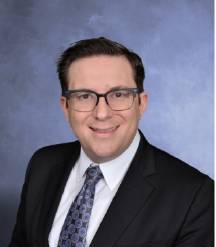
Rabbi Grossman, Head of School
As we prepare to sit down to our seders this year, I want to point out two peculiarities about the Pesach haggadah. The haggadah is supposed to tell the story of the liberation from Egypt. And yet, at no point in the seder do we ever just tell this story. Furthermore, the story of the Exodus is completely tied to the story of Moses, our redeemer, who led us out of Pharoah’s land. Moses, however, is not mentioned at all in the Haggadah.
And it is in these two anomalies: the absence of the Exodus story and the missing Moses, that we find the secret message of the Seder.
You see, while Moses does not appear at the seder, another great prophet does: Eliyahu hanavi. Elijahu and Moshe are both the prophets of redemption: Moses led the redemption from Egypt, and Eliyahu will announce the final redemption, the coming of the Messiah. Moses is the redeemer of the past, Eliyahu is the redeemer of the future.
The Haggadah, therefore, does not really celebrate the redemption of past, but rather the redemption that awaits us.
And this is also why we don’t tell the story of Egypt at the seder. We do not tell the story of our past redemption, but rather the story of our future redemption. And this is why the haggadah begins with the words l’shanah habah b’ara d’yisrael—next year we will be in the Land of Israel; and this is why the Haggadah ends with the cup of Eliyahu and the singing of “L’shanah haba’a b’Yerushalaim—next year in Jerusalem.” When we look forward to Eliyahu leading our salvation.
This, then, is the message of the seder: while Passover is when we mark our past oppression and redemption, we do so only to look forward to our future. It would be perfectly appropriate and justified to spend the seder night recounting our history and the injustices we endured and overcame. But our rabbis forced us instead to focus forward. And this has made all the difference. Our focus on the future redemption has been the secret to our success as a people, to surviving even the most unimaginable of our national tragedies.
Had we, as a people, focused on our past grievances—or even our past triumphs—we would have become mired in the past and suffered the fate of every other ancient people that has disappeared from history. Instead, because we have always looked forward, we survive, we live, and we thrive.
We are living today in an unprecedented time. We are of course living in a time of unprecedented upheaval, but we are also living in a time of dramatic unity. The world, strangely, seems to have come together, even as we are told to stay apart and keep our distance. I feel today a sense of empathy that is transcending cultures, races, and religions. We know that we share the same vulnerabilities and the same hopes, and we realize that we are all in this together, that we are all citizens of the same world.
It is against this backdrop of universalism that we enter Pesach, a holiday that is so focused on ourselves, our own nation, our own story.
But I think it is precisely our story and our message that we, the Jewish people, can offer to the world now, at this most difficult hour. We say to our friends and our neighbors from every nation, “Join us in looking forward to future that awaits, to the world we will rebuild together when we are redeemed from this hardship. The Talmud tells us, the fact that God redeemed us from Egypt assures us that we will be redeemed once again.
I pray that God, who rescued our people from so many dark times in the past, bring light, health, healing, and salvation to us and to all the world. And may we all merit to see Eliyahu and the final redemption.
Amen, chag sameach.



